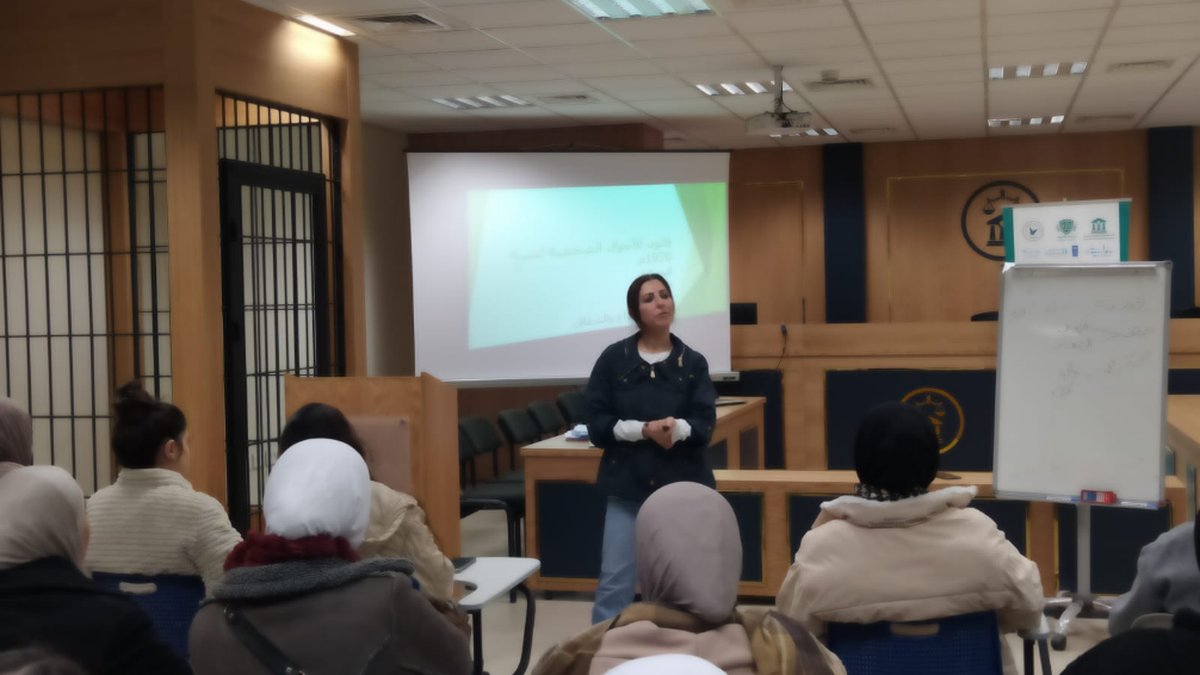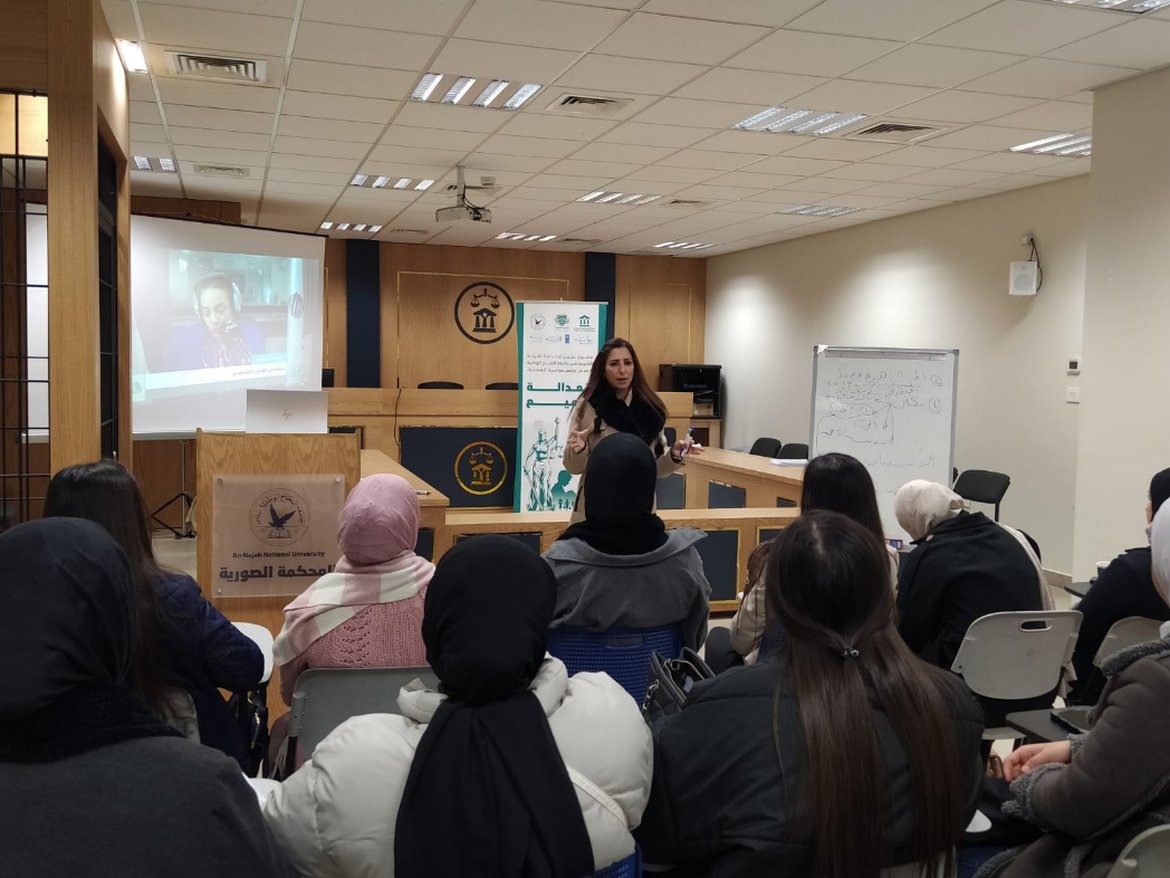
As part of its ongoing efforts to enhance the capabilities of law students and prepare them for effective legal practice, the Legal Clinic at An-Najah National University organized a specialized training program for its students. The training, conducted by lawyer Samira Al-Masri, took place over four days from February 16 to 19, 2025.
The training focused on the principles of Personal Status Law as applied in Sharia courts in the West Bank, with a particular emphasis on topics such as visitation and custody, alimony, and marital discord. The primary objective was to empower students to become advocates for justice and individual rights by equipping them with specialized legal knowledge on family law issues, which constitute a fundamental aspect of legal practice in Sharia courts. The program included intensive sessions on the legal framework governing these matters, practical guidance on filing legal applications, and handling judicial procedures, as well as developing research and legal analysis skills to enable students to effectively address complex family law cases.
The training was structured around three key topics. In the visitation and custody segment, students were introduced to the legal procedures governing parents' rights to see and host their children after separation, in accordance with standards that prioritize the child’s best interests. They also received training on drafting visitation and custody requests and preparing the necessary legal documents for court submission. The alimony segment explored legal aspects related to securing the economic rights of family members, particularly children and spouses, and included a review of mechanisms for calculating alimony and enforcing payments in cases of non-compliance.
The program also highlighted the role of courts in ensuring fair distribution of family resources, aligning with Sustainable Development Goal 1 (No Poverty), which aims to guarantee financial resources essential for a dignified livelihood. Meanwhile, the marital discord segment focused on legal procedures for resolving family disputes, including divorce and its legal consequences, as well as the rights of all parties involved, particularly children, to ensure a balance between rights and responsibilities within the family.
Beyond legal knowledge, the training emphasized the promotion of human rights and gender equality, aligning with Sustainable Development Goal 5 (Gender Equality). Students were equipped with the necessary skills to advocate for the rights of individuals in family law cases and were made aware of the critical role lawyers play in safeguarding these rights before Sharia courts.

This initiative is part of the Legal Clinic Sustainability Enhancement Project, funded by Sawasya III Program and implemented in partnership with the United Nations Development Program (UNDP), UN Women, and UNICEF. The training was conducted in response to pressing societal needs and reflects a commitment to preparing qualified legal professionals capable of upholding the rule of law and protecting fundamental rights and freedoms.
These efforts align with strategic sustainable development objectives aimed at establishing a society based on justice and human dignity, promoting social justice, supporting vulnerable groups in Palestinian society, and enhancing students’ practical skills to ensure their readiness for professional legal practice.
عدد القراءات: 57
